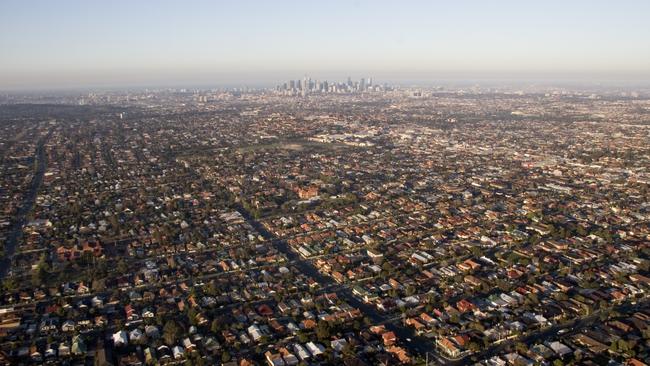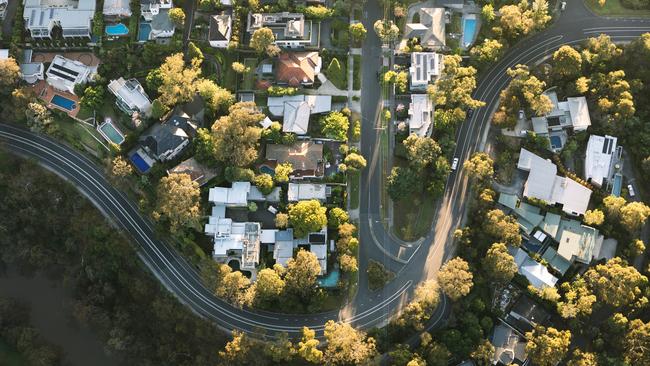Expensive house prices a weakness for Australian economy
Expensive house prices aren’t just a disaster for people looking to get into the market, they could drag down the Australian economy. This is why we should be on guard for a bigger slump.

Business
Don't miss out on the headlines from Business. Followed categories will be added to My News.
Australia’s expensive house prices are still a weakness for the economy and the government should be prepared for a “hard landing”, an international economic agency has warned.
Despite falling gradually since late last year, house prices are still high, the Organisation for Economic Co-operation and Development says.
While a “soft landing” is likely, government authorities should be on guard for a bigger slump, the group said in a report released this morning.
MCCRANN: BE ALERT, NOT ALARMED
MONEY HELP FROM THE BAREFOOT INVESTOR
“A direct hit to the financial sector from a wave of mortgage defaults is unlikely,” the report said.
“However, if house prices collapse consumer spending could suffer, via (a) negative impact on wealth, including from exposures to bank shares, which would encourage deleveraging.
“Together with reduced housing-related expenditures, this would put pressure on the whole economy.”
The OECD said financial supervisors and regulators “should be prepared in the event of a hard landing in the housing market”.

It also said Australia’s debt-riddled Australian households would suffer from a US-China trade war.
“Australia faces economic challenges that, if not handled well, could see an end to its strong track record,” the report said.
The analysis suggests that if China raise tariffs in response to the US, the national economy was at risk.
“A negative external shock could prompt a sharp cut to incomes, rise in unemployment and downturn in consumption,” the report says.
“This would in turn increase mortgage stress and further escalate falls in house prices.”
China is an important trade partner to Australia, accepting around 34 per cent of national exports according to government statistics.
“Most critical are developments in demand and prices for iron ore and coal, particularly the impact of China’s economy on these. China is also of growing importance for Australia’s trade in services, notably in tourism,” the OECD report says.
According to the study, household spending will slow down in coming years as economic growth is reduced.
“Output growth will moderate slightly in 2020 as capacity constraints tighten, export-market growth slows and as households become less willing to draw down savings to fuel consumption,” the report says.
While households feel the pinch, pressure is mounting on the nation’s cities as more people call Australia home.
“Rapid population growth is supporting Australia’s economic growth but concentration in metropolitan areas is straining infrastructures and fuelling traffic congestion, noise and air pollution.” the report says.
Financial stress has also decreased, with borrowers making advance payments on mortgages, despite rising house prices and mortgage debt.
“Indebtedness is concentrated in middle and high-income households, rather than low-income households,” the report recognises.
Employment remains high compared to other countries, but mothers and single parents are being left behind in the workplace.
“Participation of women with children is relatively low, especially among lone mothers, suggesting issues in family-related benefits and taxation, and in support for child care services,” according to the report.
Indigenous Australians also remain disadvantaged, with lower education, employment and life expectancy rates.
“While for immigrants the poverty gap has declined, for the indigenous population the gaps appear to have risen,” the report says.
Australia is one of 36 members of the economic organisation, which aims to improve global economic and social wellbeing.
Originally published as Expensive house prices a weakness for Australian economy


